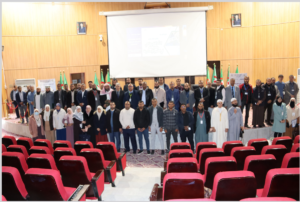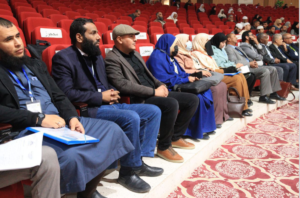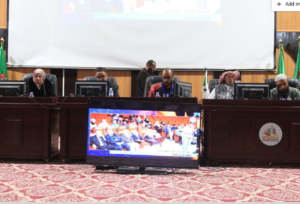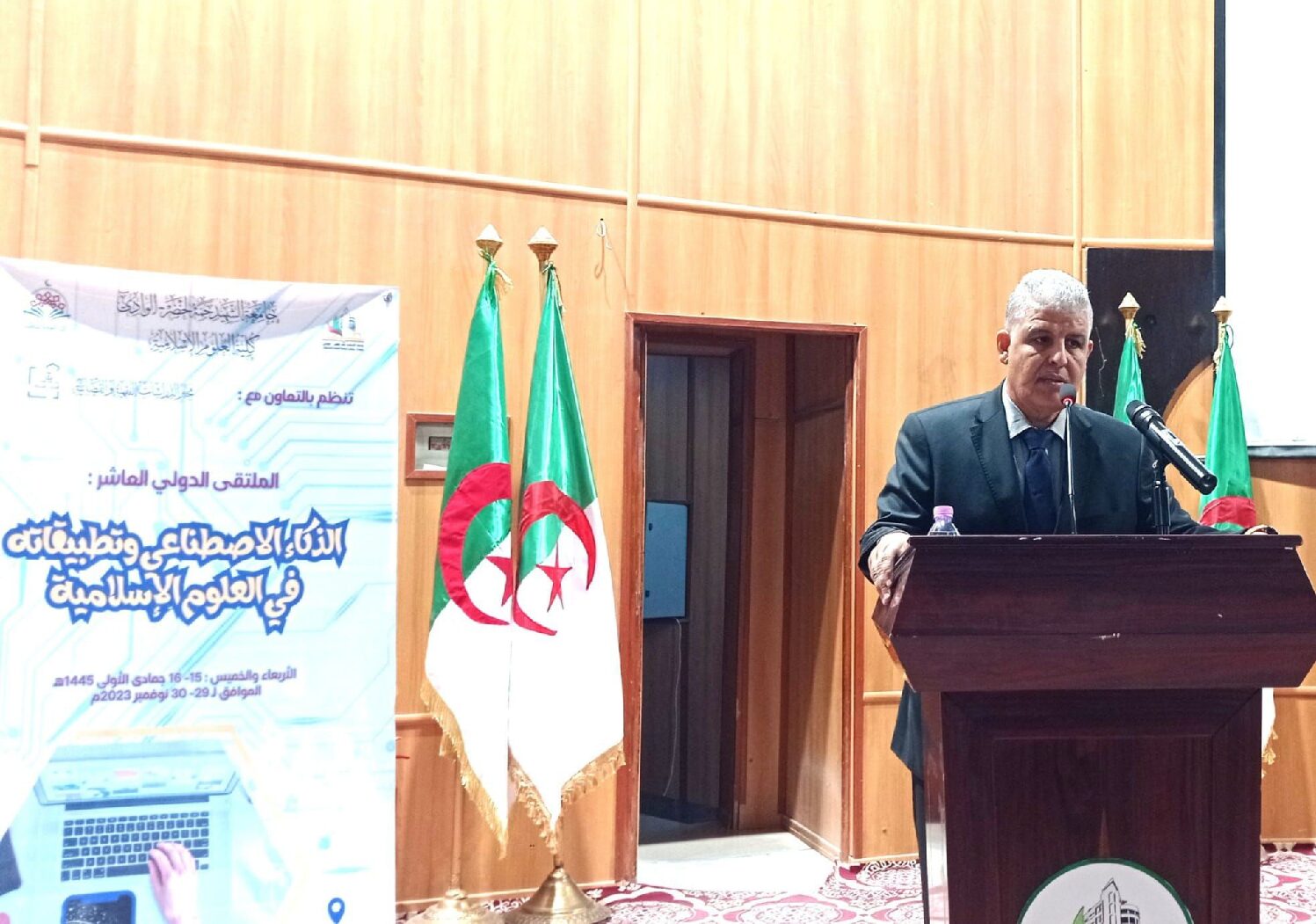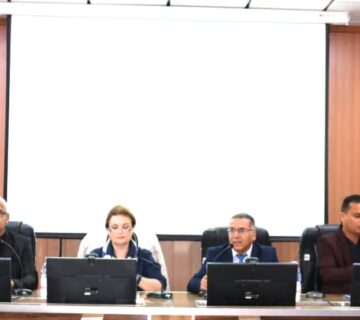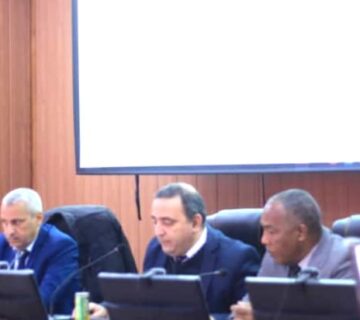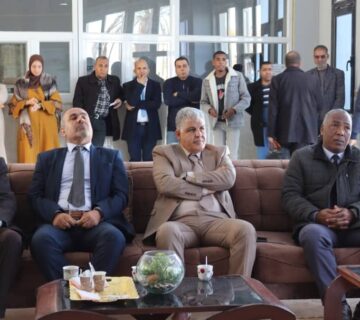Artificial Intelligence and Its Applications in Islamic Sciences” International Conference: Conclusion and Recommendations
After two days of presentations, academic conversations, and esteemed participation from college and university students, as well as researchers from both local and international institutions, and the general public, the events of the international conference “Artificial Intelligence and Its Usage in Islamic Studies” wrapped up today on November 30th, 2023. The conference was hosted by the Faculty of Islamic Sciences at the University of El Oued in the Grand Lecture Hall of Abu Al-Qasim Saadallah.
The event was attended by:
- Professor Omar Ferhati, Rector of the University
- Professor Boubaker Mansour, Vice Rector for Scientific Research
- Professor Ibrahim Rahmani, Dean of the Faculty
- Academic and administrative staff of the Faculty and the University
- Professors and researchers from within and outside the country
In his speech, the Rector of the University welcomed guests from Saudi Arabia and Tunisia to Algeria. He expressed gratitude towards the PhD students for their participation and praised Professor Ibrahim Rahmani, Dean of the Faculty, for encouraging collaboration. The Rector also acknowledged the professors at the Faculty of Islamic Sciences for their dedication to national values and identity. He commended the conference’s exploration of artificial intelligence about Islamic sciences and invited researchers to continue participating in future scientific endeavours. The Dean of the Faculty gave a speech expressing his joy at the involvement of colleagues from Saudi Arabia, Tunisia, and all the researchers contributing to the scientific event. He emphasized that increased generosity and collaborative efforts benefit both Islamic law and the nation. Dr. Faisal Farsi from Saudi Arabia also spoke, expressing gratitude to the University Rector, Vice Rector, Faculty Dean, university staff, and Algeria for their warm welcome and for providing an opportunity to participate in this event. He also highlighted the strong academic prowess and dynamism displayed by El Oued University.
Some of the key recommendations from the conference included:
- Stressing the need to raise awareness about concerns regarding artificial intelligence in Islamic sciences, highlighting potential risks due to its independence from religious oversight.
- Encouraging collaboration between experts in artificial intelligence and specialists in Islamic law to develop a legislative framework for regulating the use of AI technologies.
- Establishing dedicated research labs focused on using artificial intelligence to support Islamic sciences, staffed with relevant specialists.
- Creating specialized academic programs at the master’s and doctoral levels that explore legal aspects related to artificial intelligence and its applications.
- Urging researchers to intensify their study of artificial intelligence, keeping pace with its developments and maximizing its benefits.
- Promoting collaborations between manuscript houses, universities, and AI structures to advance manuscript-related research opportunities.
- Facilitating partnerships between universities and AI companies for cooperation, student training, and faculty development in this field.
- Introducing epistemological integration into curricula and scientific conferences as a means of serving Islamic sciences.
- Highlighting the importance of enhancing computer science courses at national universities by incorporating knowledge about artificial intelligence.
Source: https://www.univ-eloued.dz/islamic-conference-2/
